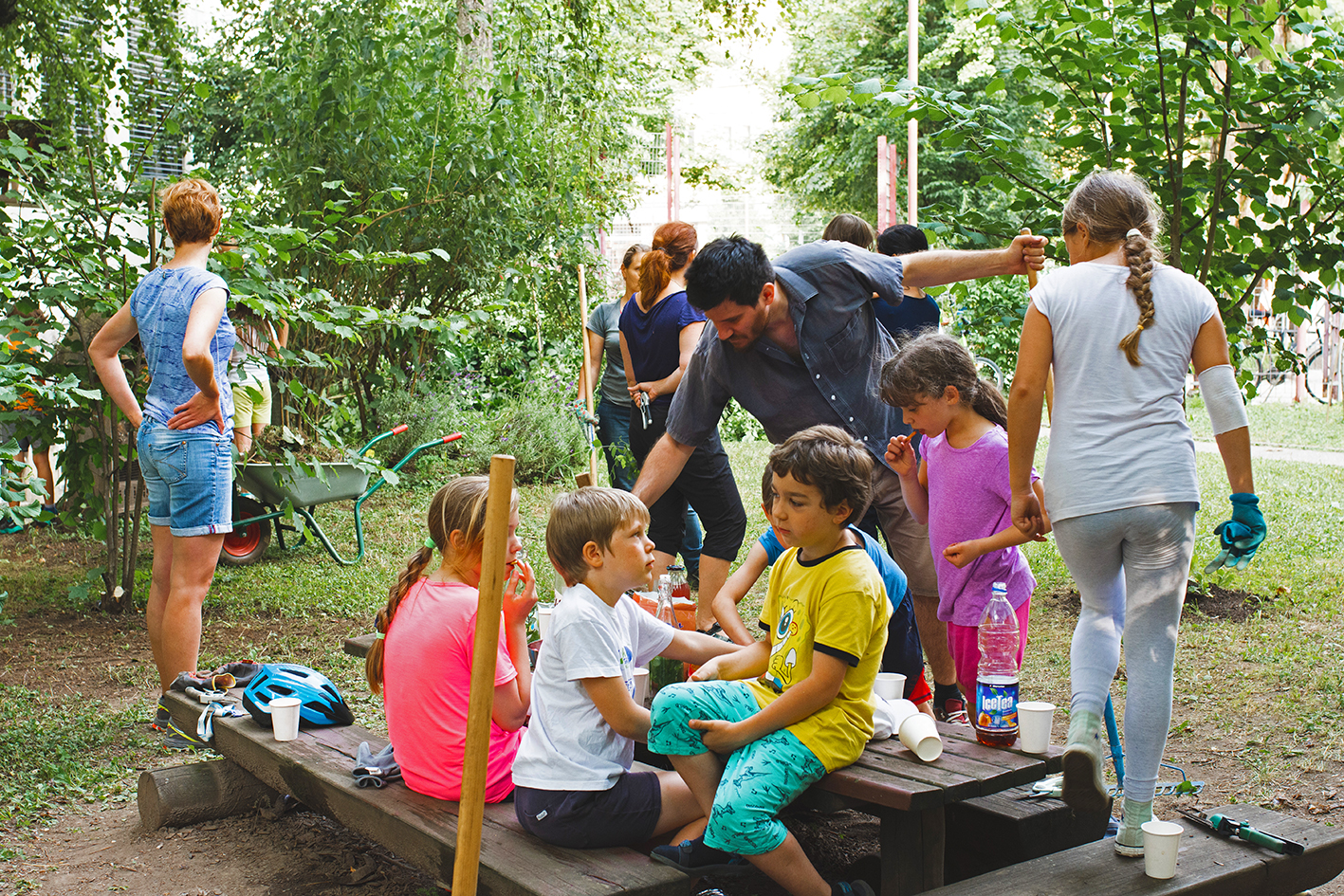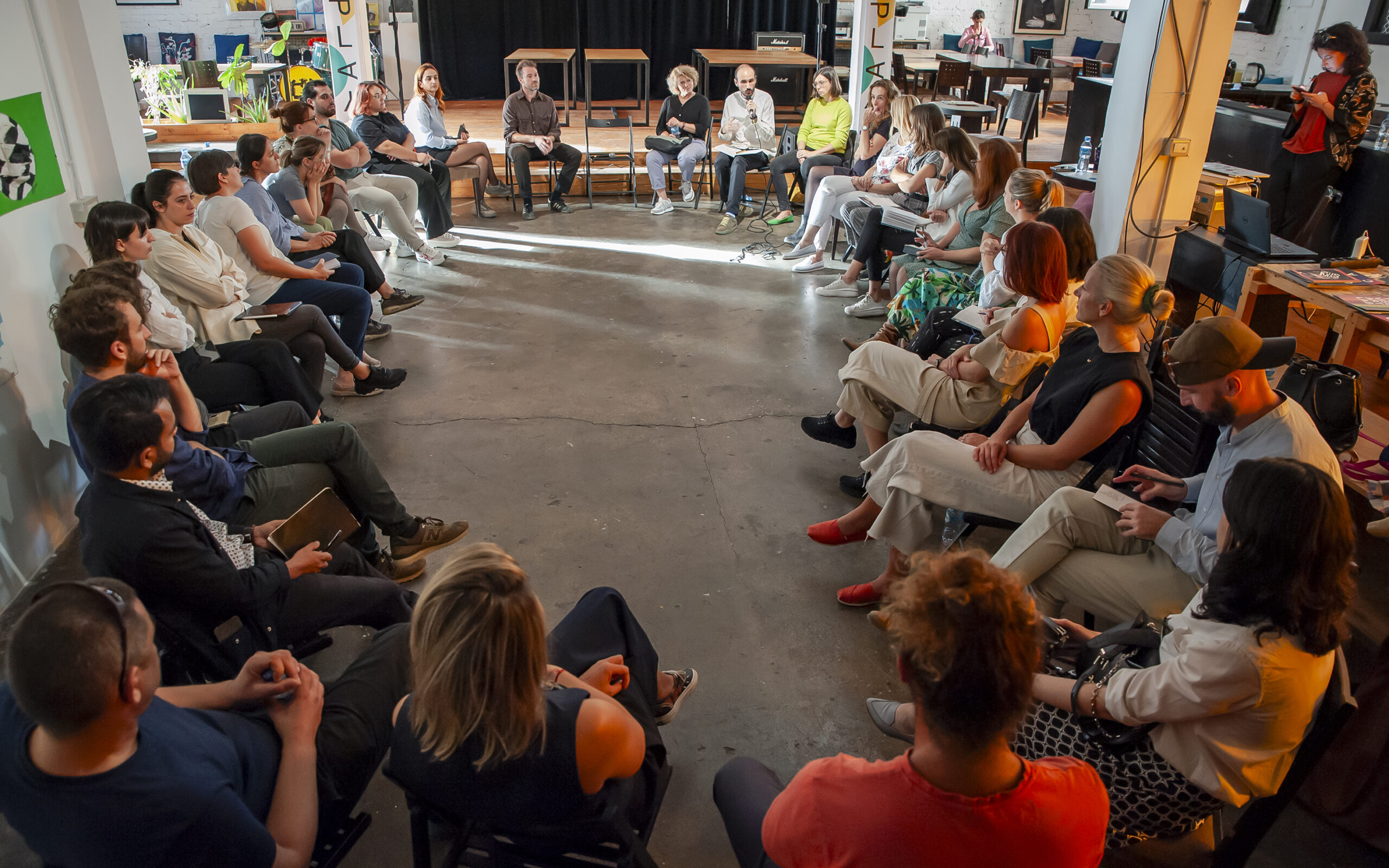
Photo by Luka Vidic, Društvo Pazi!park archive
Today, thousands of children across the globe are celebrating World Play Day. The abundance of opportunities to explore and play outdoors is essential for children’s physical and mental health, as well as their happiness, learning and development. Well-designed playscapes can create conditions for more enriching kinds of play to unfold and project RE:PLAY highlights the significance of designing playscapes by involving children in the design process.
Project RE:PLAY (Redesigning playscapes with children in Western Balkans), is one of 13 proposals selected among almost 350 projects which applied to the Creative Europe call for the cooperation project in Western Balkans. RE:PLAY is engaged in rethinking play as a distinctly human capacity which is currently underrated by urban design. It highlights the importance of designing playscapes with and for children, as they are primary users and should be co-creators as well. RE:PLAY partners are design professionals working with play design and participatory practices for children. We come from 5 countries: Slovenia (Društvo Pazi!park, Ljubljana), Croatia (Kreativni Krajobrazi, Zagreb), Serbia (Udruženje Škogled, Belgrade), Albania (Qendra Marrëdhënie, Tirana) and Montenegro (Gradionica, Bar). In the next 3 years (2021-2023) we will engage in cooperation and exchange of experiences, approaches and concepts on designing with children for children, which will result in the design of 5 new playscapes for enriching natural and unstructured outdoor play and guidelines for fellow designers on how to do it.
RE:PLAY project is in full swing and in the next few months we are going to play and design together with children. Brainstorming, mapping, studios and workshops will be implemented in 5 pilot areas, working with different target groups: socially disadvantaged children, children with reading and learning disabilities, Roma and migrant children, toddlers and teenagers. Our main goal is the direct involvement of children in the design process and the exchange of knowledge and practices to be consequently offered to professional designers in the Western Balkans in the form of new work methodologies and approaches.
Children nowadays spend too little time outdoors. The National Trust research showed that children are playing outside for an average of just over four hours a week, which is half the time that their parents did when they were children. Spending time outdoors, especially playing, is very important for child’s health and development. Outdoor play contributes to physically fit, stronger and healthier children, who are mentally resistant, more confident and socially better adapted. Particularly important is unstructured free play and play in nature, which enables children to take risks, explore their curiosity and cultivate their imagination, independence and empathy. Therefore, encouraging children to spend more time outdoors is essential, if we are to give the next generation physical and mental health they need for life. For children to spend more time outside, we must offer them a suitable environment that will be close to their home, well accessible and safe, but at the same time interesting enough to encourage play. It is a task for spatial planners and designers to create spatial and material conditions for play and it is up to us to ask children what they really want.


